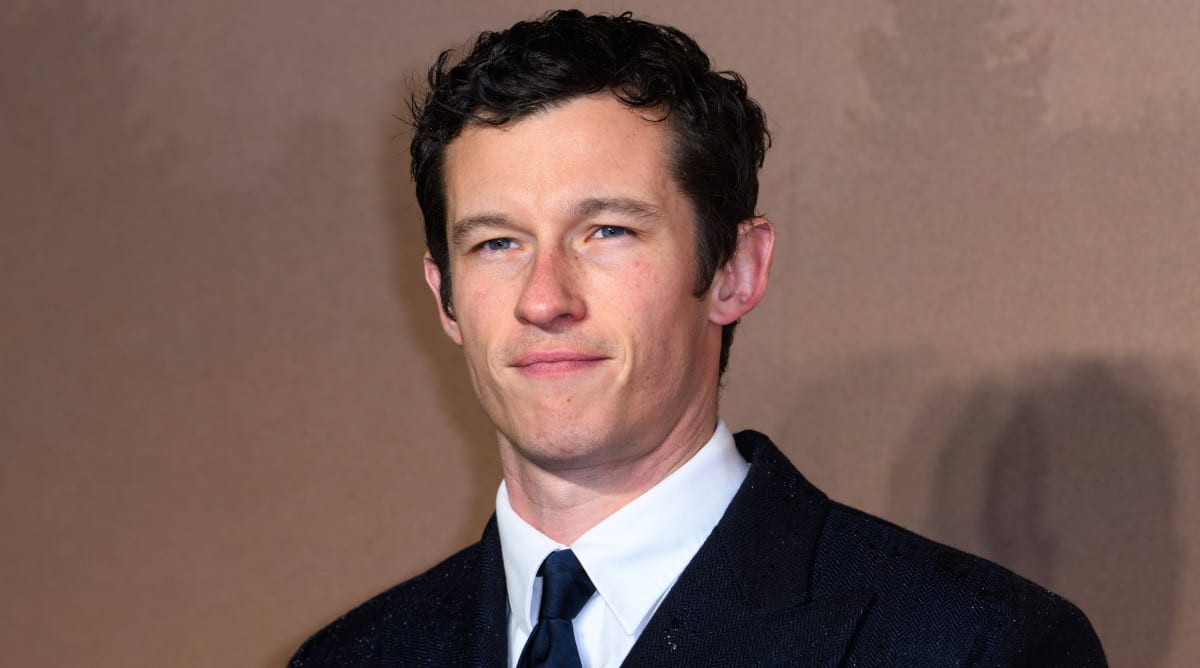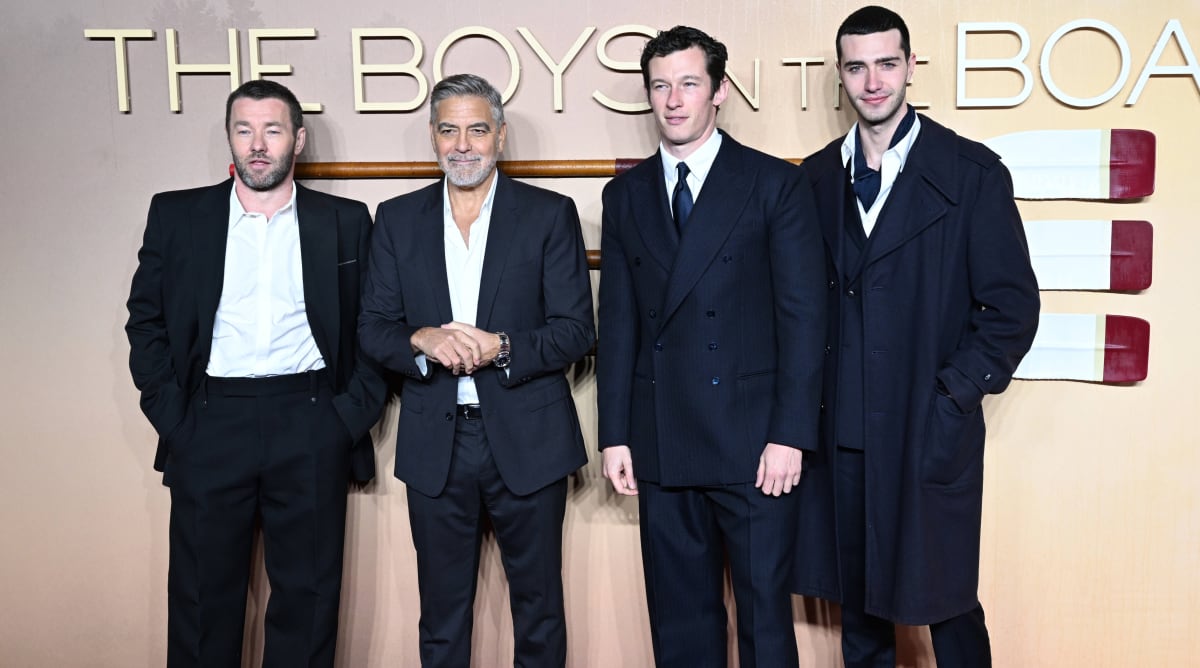It can sometimes seem as though crew exists less as sport than as metaphor. Rowers push themselves in fierce individual pursuit; and yet, the formation of a symphonic whole is what ultimately propels the boat. Power is nothing without precision and teamwork. As George Pocock, the British designer of wooden racing shells, once observed: “Harmony, balance and rhythm. There you have it. That’s what life is about.”
That line comes from The Boys in the Boat, the excellent 2014 book by Daniel James Brown, detailing the unlikely triumph of the 1936 University of Washington men’s crew team. A collective made up of modest, Depression-era blue-collar kids—sons of loggers and fishermen—from the Pacific Northwest.
First, the Huskies’ eight-man varsity boat would outrace rival boats from Ivy League schools. Then, with the Pocock-built Husky Clipper slicing through the water, the boys from Washington would overcome circumstances and underdog status to win the most unlikely gold medal at the 1936 Olympics in Berlin. These were, of course, the Hitler Games—a mid-20th-century version of sportswashing, a competition doubling as an airbrushed display of German triumphalism—and even the Führer himself was on hand for the final race.
Initially acquired by the Weinstein Company with Kenneth Branagh set to direct, The Boys in the Boat found its way into the capable hands of George Clooney and his production company, Smokehouse Pictures. Off a script written by Mark L. Smith and Clooney’s longtime producing partner, Grant Heslov, Clooney directs—assuming the part of coxswain, if we’re going to torture these crew metaphors.

Matt Crossick/Imago
But, the scene-stealing performance comes from Callum Turner, who plays the role of Joe Rantz. Inasmuch as a boat can have a star, Rantz was a preternaturally strong rower who came with an unshakeable disposition. That he also brought to bear a poignant origin story—he was effectively abandoned by his father and drew motivation and self-esteem from the encouragement of his girlfriend—makes the Boys in the Boat saga all the more cinematic.
A 33-year-old Brit, Turner has starred in the Fantastic Beasts series and Emma. While he started his acting-modeling career in a spot for Reebok, he says he’d always wanted to act in a sports film. Then came Clooney. Though, in fairness, The Boys in the Boat is so much more than the formulaic underdog-team-overcomes-odds-and-obstacles-to-win-big-game movie.
The film opens theaters-wide on Christmas Day. The morning after the film premiered in New York, he spoke with Sports Illustrated. Some outtakes are below, edited lightly for brevity and clarity.
Sports Illustrated: You’re growing up in Chelsea and you’re seeing those boats on the Thames. What are you thinking? Did that hold any curiosity or appeal to you?
Callum Turner: I grew up by the river and I love being by the water. It just felt like [crew] wasn’t necessarily a sport for us. I was far more interested in, uh, playing soccer.
SI: Your crew experience was like Joe Rantz’s acting experience. Never even never crossed—
CT: —your radar! Never. And you know what’s really interesting? Art imitates life—none of us [the actors] had. And these [Washington] boys, too, they only joined the team for a place to sleep and something to eat and a bit of money in their pocket and so they could pay for [their] tuition to stay in school. Most of the boys on that team were like that, and the same for us. We were doing it because George Clooney had cast us in a movie.

Cover Images/Imago
SI: I’m sure you’ve been asked this a thousand times, but what was it like being directed by someone of his prominence?
CT: George is a wonderful human being. People told me: “You’re gonna have the most amazing time.” And he didn’t disappoint. If anything, it was better than I had expected. He’s so wise and funny. The whole set, everyone’s just there because of him. We trust him, and he trusts us. And we built a shorthand really quickly. Our references were Spencer Tracy and Gary Cooper. Creating this bond between the boys was really important. And he provided everything for us to do that. Spending two months preparing for something like this film doesn’t come along often. We had the best facilities. We had a coach who won gold at Atlanta. Physios, nutritionists, everything. It felt like being part of a professional sports outfit. I loved every second of it. And I hated it.
SI: That difficult?
CT: I remember in the first few days, going back to my hotel room and just running a boiling bath and getting in it and trying to rescue my body for the next day.
SI: Source the agony—
CT: You know what’s really interesting about rowing? It’s not about individual skill—not only were we learning a new skill for the first time, which is quite a difficult thing in its own right—but then letting go of your individuality and allowing yourself to become part of this boat, this other entity that you become. And I think the other boys in the boat felt that, too. Being together, being unified is what makes rowing so special. I didn’t realize at the time. I read the book a couple of times before we started shooting, and then, I’ve been rereading it recently, and it’s hitting me in a deeper way. You know? I’ve fallen in love with rowing through hindsight.
SI: Yeah. What you say might seem to describe a movie set, acting, a theater production. Sublimating individualism for teamwork. The importance of synchronicity? How far should we take that?
CT: I would actually say it’s much more profound. When you’re making a movie or have a structure of a soccer team or a basketball team? Well, [rowing] is like a whole other level of teamwork. You really have to lose yourself to the boat. To the greater good. And for six and a half minutes, you have to be in unison completely. You beat as one. You move as one.
In soccer, you can have a star player that can score a goal, a moment of magic or whatever, that sets the game alive. Whereas this is like pure power, pure determination, pure concentration, pure space of time. That’s why I’ve learned this deeper understanding of being part of the team.







